 Politics
Politics  Politics
Politics  Weird Stuff
Weird Stuff 10 Freaky Times When Famous Body Parts Were Stolen
 Miscellaneous
Miscellaneous 10 Interesting Things Manufacturers Stopped Making and Why
 Gaming
Gaming 10 Funny Tutorials in Games
 History
History 10 Fascinating Little-Known Events in Mexican History
 Facts
Facts 10 Things You May Not Know about the Statue of Liberty
 Movies and TV
Movies and TV 10 Movie Adaptions That Brought Popular Songs to Life
 Health
Health 10 Miraculous Advances Toward Curing Incurable Diseases
 Miscellaneous
Miscellaneous 10 Undeniable Signs That People’s Views of Mushrooms Are Changing
 Animals
Animals 10 Strange Attempts to Smuggle Animals
 Politics
Politics 10 Countries Where Religion and Politics Are Inseparable
 Weird Stuff
Weird Stuff 10 Freaky Times When Famous Body Parts Were Stolen
 Miscellaneous
Miscellaneous 10 Interesting Things Manufacturers Stopped Making and Why
Who's Behind Listverse?

Jamie Frater
Head Editor
Jamie founded Listverse due to an insatiable desire to share fascinating, obscure, and bizarre facts. He has been a guest speaker on numerous national radio and television stations and is a five time published author.
More About Us Gaming
Gaming 10 Funny Tutorials in Games
 History
History 10 Fascinating Little-Known Events in Mexican History
 Facts
Facts 10 Things You May Not Know about the Statue of Liberty
 Movies and TV
Movies and TV 10 Movie Adaptions That Brought Popular Songs to Life
 Health
Health 10 Miraculous Advances Toward Curing Incurable Diseases
 Miscellaneous
Miscellaneous 10 Undeniable Signs That People’s Views of Mushrooms Are Changing
 Animals
Animals 10 Strange Attempts to Smuggle Animals
Top 10 TikTok Controversies
In the ever-changing world of technology, TikTok is the latest social media phenomenon. Since its global launch in 2017, the Chinese video sharing app has gained 1.5 billion downloads, rapidly becoming one of the most popular platforms in the world.
Although still in its infancy, TikTok (named Douyin in China) was listed as the seventh most popular app of the last decade. Users, particularly young people, have flocked to the app to share clips of them dancing, lip-synching and performing short skits.[1] Like it or loathe it, there is no denying its vast global appeal.
But TikTok’s short history has been mired with controversy. A British inquiry raised concerns about poor data safeguarding. Popstar Lizzo has criticized it for promoting fat-shaming. And as tensions rise between China and the US, President Trump has threatened to ban the app. But Mr Trump is by no means the first to find fault with this contentious new app. Here are ten of TikTok’s most controversial moments.
Top 10 Disturbing Facts About Google
10 Erasing the poor and disabled
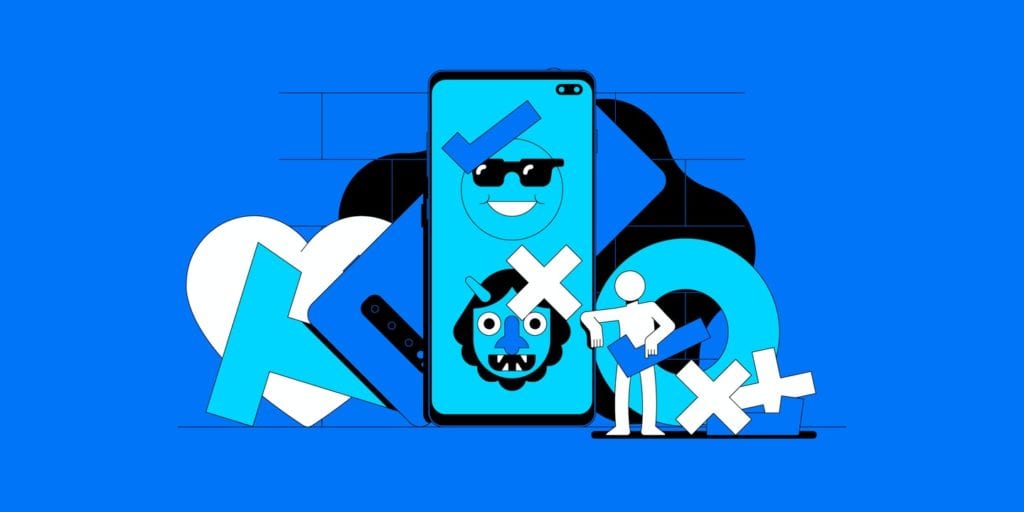
Have you ever wondered why every social media star looks gorgeous, successful, and ridiculously rich? It turns out some apps are suppressing content from poor, unattractive, or disabled users in order to make their platforms seem more aspirational.
Internal documents recently published by The Intercept, a US-based news site, have revealed how TikTok moderators censor posts based on how attractive they judge users to be. Anyone with an “abnormal body shape” such as dwarfism or obesity, “too many wrinkles” or “ugly facial looks or facial deformities” is automatically struck off from the ‘For You’ section of the app. Likewise, videos filmed in “slums” and “dilapidated housing” are barred from the feed, including anywhere with cracks on the wall or shabby decorations.
A spokesman for the Chinese company claimed the strict guidelines are enforced to prevent bullying. However there is not a single mention of bullying in any of the published documents, and TikTok has used same excuse previously to deflect accusations of discrimination against gays. Instead it seems they discriminate against the poor and disabled due to a lack of popularity. As it says in the guidelines: “if the character’s appearance or the shooting environment is not good, the video will be much less attractive,” therefore they do not consider them worthwhile recommending to new users.[2]
9 Randonauting to a dead body
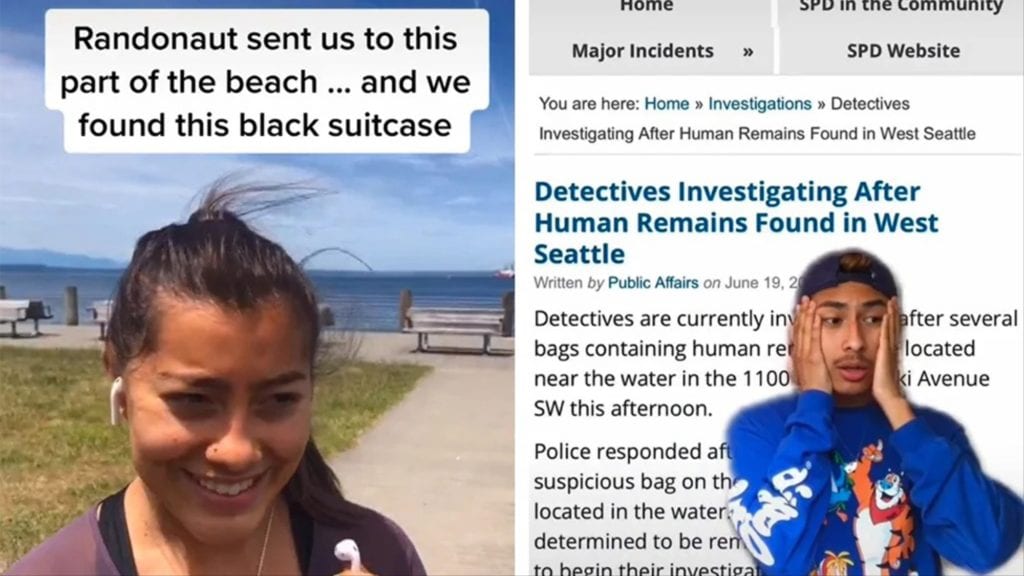
To most of us the term “randonauting” probably sounds like double Dutch, but the viral TikTok trend has become enormously popular during quarantine. A random number generator called Randonautica provides players with a set of nearby coordinates to travel to and investigate, where it claims they can discover “synchronicities” and “coincidences” outside of their typical experience.
Launched at the start of 2020, randonauting has flourished under social distancing; the #randonautica hashtag on TikTok currently boasts over 700 million views. For many, randonauting has provided some much-needed relief from the chaos of the pandemic. But one group of randonauters had a much more disturbing experience when their adventure was cut short by a macabre discovery.
In June 2020, a group of teenagers in Seattle decided to spend the afternoon randonauting. After driving out to a nearby beach, they stumbled across a suitcase that the tide had washed up. The randonauters decided to open the bag, hoping it might contain money, but after the stench subsided they found something very different stuffed inside: human remains.[3]
After arriving at the scene, the police discovered a second bag of remains in the water. The deceased were identified as a young couple: Jessica Lewis, 35, and Austin Wenner, 27. Both died of gunshot wounds. The couple’s landlord, Michael Lee Dudley, 62, has been charged with two counts of second degree murder and is awaiting trial. The motive for the crime is currently unknown.[4]
TikTok user @UghHenry later uploaded footage of their discovery, receiving tens of millions of views, although it has since been made private. “The moment I got back home, I broke down,” he told followers, “I still can’t sleep.”
8 Weaponizing social media in international warfare
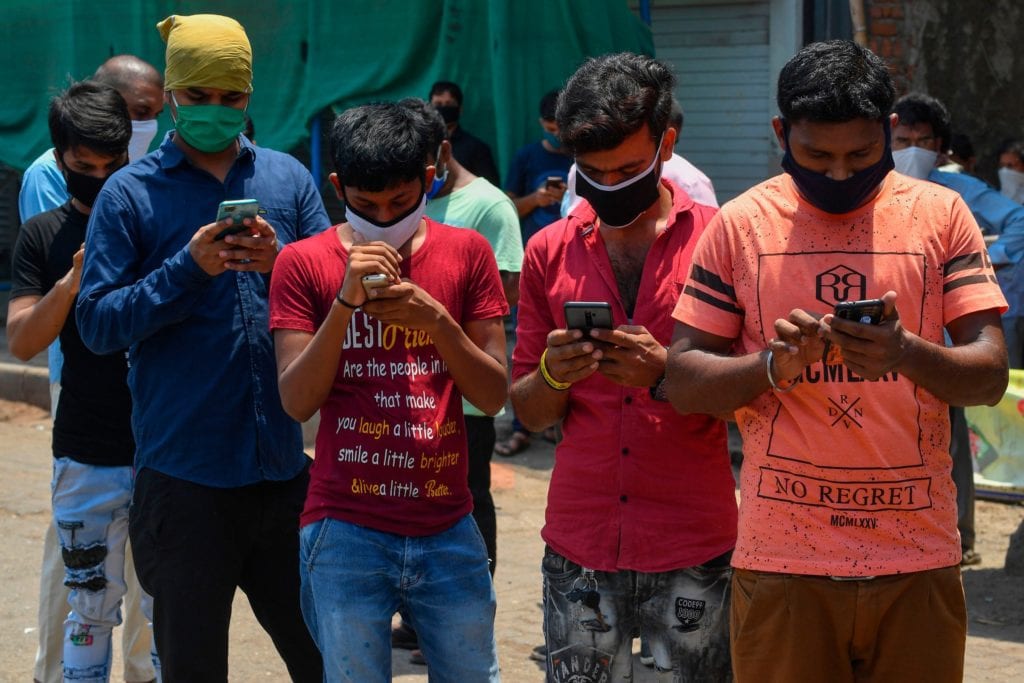
In military disputes anything can be used as a weapon, and that includes social media. Indian authorities are using a ban on TikTok to exert pressure on the Chinese government. China and India are currently at loggerheads. In June 2020 the Chinese military killed twenty Indian soldiers on the Himilayan border. India’s Ministry of Information Technology responded by banning 59 Chinese phone apps, including TikTok, claiming the apps pose a threat to the country’s privacy and data security.
Indian authorities have called on internet service providers to stop anyone in the country from accessing the blocked apps. App stores have been asked to suspend all updates and downloads for TikTok, WeChat and the other blacklisted services.
The actions of the Indian government are expected to deal a serious blow to China’s rapidly expanding technology sector. Internet usage in India is colossal; Indians make up over a third of internet users worldwide. On top of that, India is the most popular country for downloading TikTok, with over 600 million downloads, higher than the US or China. This huge base of users will have to find new platforms for communicating and socializing.[5]
China has come under harsh criticism for its own internet restrictions. Its government are accused of blocking various foreign news sites and monitoring its citizens. Now, in a strange new twist, Indian authorities are using similar methods to restrict access to a number of Chinese apps. They claim these platforms threaten the country’s sovereignty, but their actions are cutting off millions of users from some of the India’s most popular apps. The jury remains out on whether censorship really is the solution for tackling hostile foreign powers and untrustworthy tech giants.
7 Egyptian women jailed for “inciting debauchery”
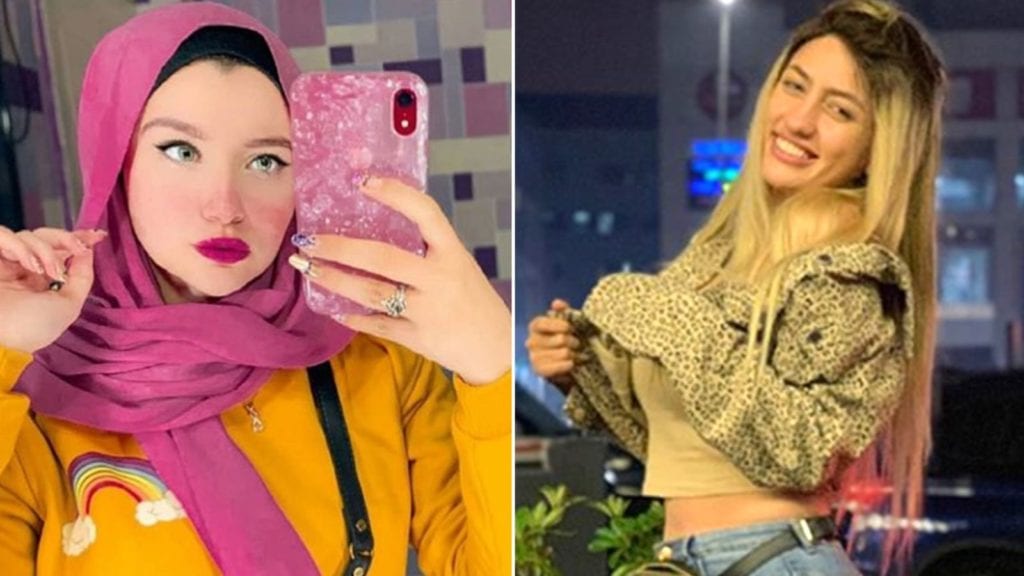
In most countries if you tell someone that you work as a “social media influencer” the worst you can expect is a roll of the eyes and a few snarky comments about “entitlement” and “getting a real job”. Admit to it in Egypt and you could find yourself with a two year prison sentence. That is what happened to five young women who in July 2020 were sentenced by Egyptian authorities for uploading “indecent videos” to TikTok.
Influencers Mawada al-Adham and Haneen Hossam leapt to fame on TikTok for their lip sync and dance videos, both gaining millions of followers. But in April 2020 Hossam was arrested after she posted a video explaining how women could earn money talking to strangers on the app Likee. She was accused of inciting debauchery and human trafficking. al-Adham was arrested shortly after, along with three other women who have not been named.
The social media stars have been prosecuted for “violating family values and principles and establishing and running online accounts to commit this crime.” On top of their prison sentences, they were each fined 300,000 Egyptian pounds ($19,000).[6]
6 Use of unlicensed music
TikTok is reshaping the way we listen to music. Songs like Lil Nas X’s ‘Old Town Road’ and Megan Thee Stallion’s ‘Savage’ have been propelled to global acclaim after finding fame on the app. Budding musicians are now trying to mirror that success by creating the next viral pop sensation. But not everyone in the music industry is smitten with this innovative new platform.
In April 2020, the National Music Publishers Association (NMPA) threatened to take TikTok to court for copyright infringement. Universal Music (part of NMPA) had been in talks with the Chinese company since early 2019. But, after a year of negotiation, they had failed to reach an agreement. This meant Universal songwriters like Billie Eilish or Taylor Swift were unable to receive royalties when their music was used in TikTok videos. One spokesperson called it a “blatant infringement … something that is rarely seen at this scale by a large multinational company.”[7]
But later in July, when a lawsuit seemed almost inevitable, TikTok finally struck a deal with the NMPA. Now, when a piece of music crops up in a video, you can be sure the songwriter is being paid their dues.[8]
Top 10 Disturbing Facts About Instagram
5 Body shaming—Lizzo steps in

Despite years of campaigns and complaints, “body shaming” lives on. Almost every beauty magazine, TV sitcom and social media app on the planet has fallen foul of it. Now TikTok is the latest platform to be accused of mistreating its users based on the way they look.
In March 2020, popstar Lizzo posted several videos of herself in swimwear to the app. They were swiftly taken down. As an overweight black musician, Lizzo is no stranger her appearance being criticized. The Michigan-born popstar quickly struck back, pointing out the hypocrisy that her videos were deleted when similar content from slimmer models is allowed. “TikTok keeps taking down my videos with me in my bathing suits,” she explained to her followers, “but allows other videos with girls in bathing suits. I wonder why? TikTok … we need to talk.”
TikTok claimed that the videos were removed due to confusion around the rules on “sexual gratification”. They were later reinstated in full.[9]
4 Australian government threatens to ban it
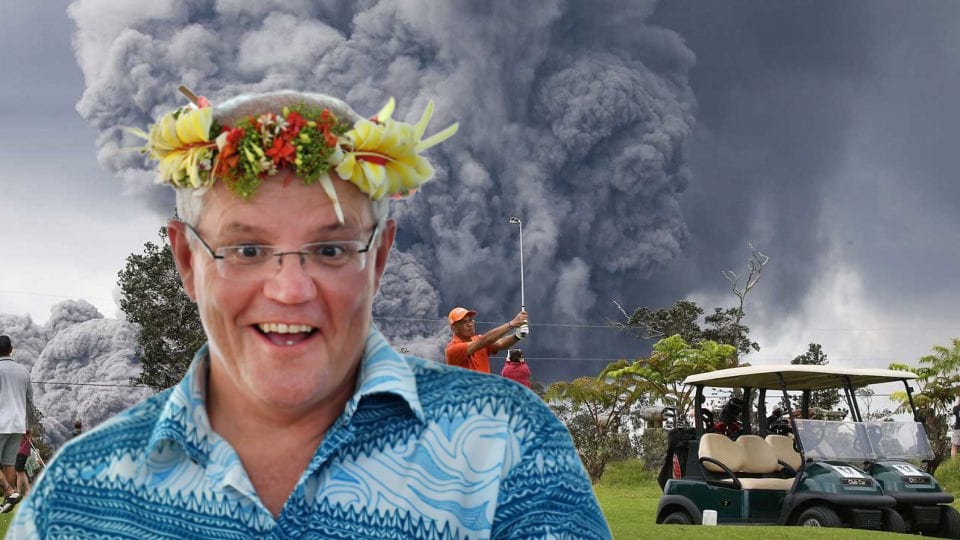
Some world leaders just need to learn to take a joke. In late 2019, while Australia was being wrecked by bushfires, young people down under used TikTok to air their contempt for Prime Minister Scott Morrison. During the peak of the crisis, Morrison decided to take his family on a six-day holiday to Hawaii. In that time two firefighters died trying to keep the blazes under control.
Understandably, Morrison soon became a figure of ridicule on Australian social media, and the TikTok memes went through the roof. One video mocking the PM to the tune of Billy Joel’s ‘We Didn’t Start The Fire’ gained over 120,000 views in less than a week. Another using September’s 2006 europop hit ‘Cry For You’, which features the lyrics “you’ll never see me again”, was viewed almost 220,000 times. In total the app’s #scomo hashtag had received more than a million views by the time Morrison returned to work.[10]
Months after his viral infamy, Morrison declared that the Australian government were launching an investigation into TikTok. The PM announced that intelligence agencies would scrutinize the app “very closely” to find out if it threatened the country’s data security. A number of MPs called on Morrison to ban it altogether. Following the investigation, it was decided that TikTok did not compromise Australian security and that it would be allowed to stay up and running.[11] Looks like he took all those incompetency memes on the chin after all.
3 Stolen content from TikTok reposted on Zynn
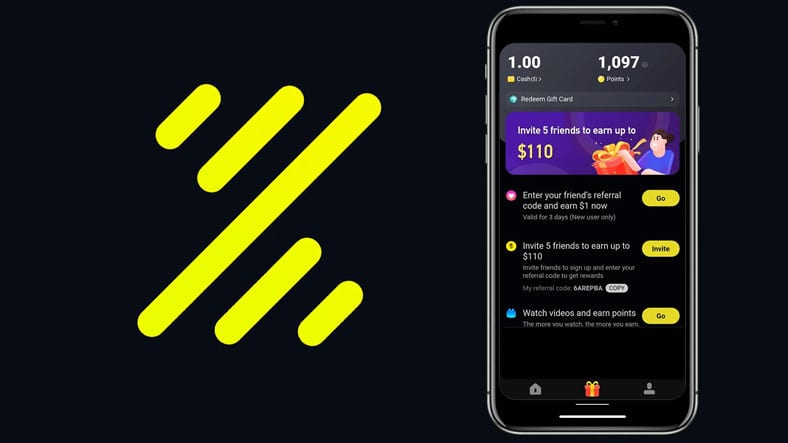
In May 2020 a new social media app by the name of Zynn sprung from out of nowhere to the top of the app store charts. The millions of people who downloaded Zynn found an app fit to burst with short videos and skits. Some users were even getting paid to watch certain clips and recommend the app to their friends. The only issue: a significant amount of the content on Zynn is stolen, plagiarised from other platforms and reposted without consent.
TikTok megastars Charli D’Amelio and Addison Rae were among those to have their videos pirated. Others found their entire accounts had been stolen by imposters trying to pass themselves off as authentic internet celebrities. Many creators are perplexed about how videos from their TikTok and Instagram accounts have found their way onto the strange platform.
This kind of fraudulent behavior is nothing new online. Whenever a new social media app crops up people often rush to snap up celebrity usernames and repost stolen content. The suspicious thing about Zynn is that the plagiarized videos date back to February 2020, three months before the app was made publicly available. Zynn have vowed to look into the issue and take action against stolen content. The app also has been accused by several critics of being a pyramid scheme, something its Chinese creators fervently deny.[12]
2 Data collection allegations
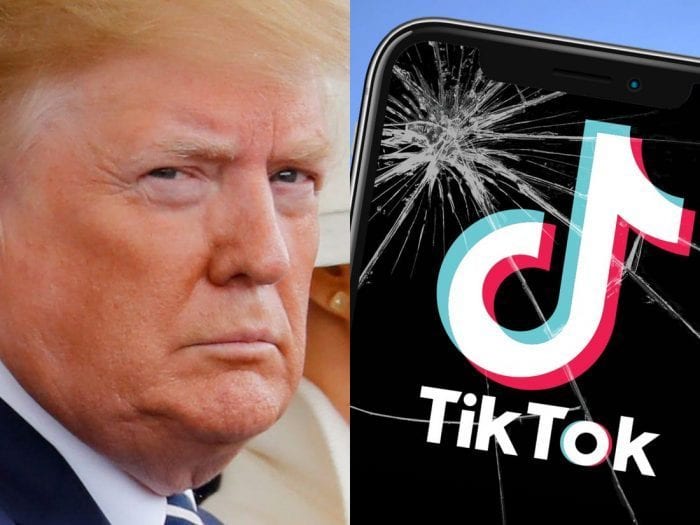
TikTok has come under widespread scrutiny for its collection and safeguarding of data. President Trump asserted on a number of occasions that it poses a major risk to US national security. Wells Fargo, the Californian bank, has instructed all employees to delete it from their phones. British authorities have become so concerned they have decided to hold an inquiry into the app’s data protection protocols for young users.
Western authorities seem to be constantly painting TikTok as a menacing data-hungry e-villain, but is this really the case? No, say the tech experts. While there are definite issues with the app’s handling of data privacy, those issues are in no way unique. It is standard practice for mobile apps to collect and analyze vast amounts of personal information, particularly by monitoring their users’ locations. Most apps on your phone are selling your personal data to third party buyers on a regular basis. It is hugely intrusive, and a little unsettling, but that is the nature of the technology business.
As US-China relationships become increasingly strained, it is understandable for the US government to be uneasy about growing Chinese influence. Secretary of State Mike Pomeo has voiced his concern that, under China’s cybersecurity laws, the Chinese government have the authority to demand users’ data from TikTok. But TikTok claims his worries are misplaced. “We have never provided user data to the Chinese government,” said a spokesperson for the app, “nor would we do so if asked.” Furthermore, there is no evidence that anyone from the Chinese Communist Party has tried to acquire user information from TikTok, or that the company would be forced to oblige.[13]
1 Blocking user for calling attention to Communist Concentration Camps

The treatment of Uighur Muslims in Xinjiang, China has divided and outraged people the world over. Chinese authorities are accused of imprisoning over a million Muslims in concentration camps, designed to brainwash and strip them of their religious identity. Beijing argues that the camps are voluntary re-education centers that help prevent the spread of terrorism. They claim Western governments and media are deliberately misrepresenting the situation.
In 2019, a US teenager uploaded a series of videos to TikTok to bring attention to events in Xinjiang, which she describes as “another Holocaust”. Seventeen year old Feroza Aziz framed her videos as makeup tutorials, teaching viewers how to get long eyelashes. But only seconds in she asks viewers to drop their curlers and instead use their phone “to search up what’s happening in China, how they’re getting concentration camps, throwing innocent Muslims in there, separating families from each other, kidnapping them, murdering them, raping them, forcing them to eat pork, forcing them to drink, forcing them to convert.” The clips have been watched over a million times, and widely shared across Twitter and Instagram.
Feroza Aziz, an Afghan-American from New Jersey, told followers that she had to disguise her videos to avoid them being removed by TikTok. Despite her efforts, the platform suspended Aziz’s account in November 2019.[14] They later apologized, claiming there had been a “human moderation error” and that her videos did not breach security guidelines.
TikTok has come under attack for judging videos in line with the views of the Chinese government. According to a leaked moderation guide, “highly controversial topics” are banned by the app, “such as separatism, religion sects conflicts, conflicts between ethnic groups, for instance exaggerating the Islamic sects conflicts.” TikTok is also accused of censoring content related to Tibetan independence, Falun Gong and Tiananmen Square.[15]
Top 10 Disturbing Facts About Facebook








